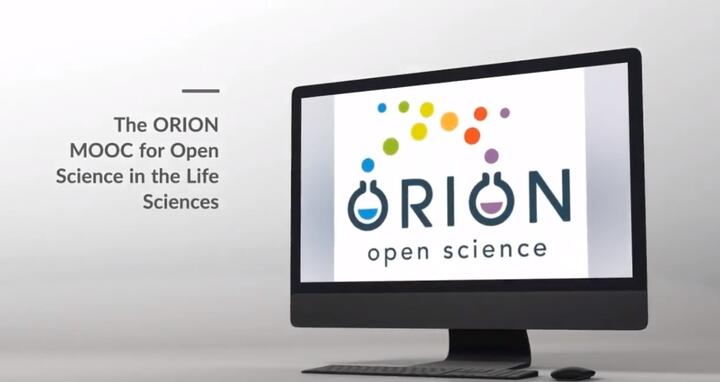How to Share Research with the World
The principles of Open Science are about accessibility and collaboration in research, but this still leaves questions to be answered. Why has Open Science become part of the research landscape? How will it impact day-to-day scientific work? What new developments are available and how can they be used effectively? The ORION MOOC helps life sciences researchers learn more about what Open Science is and why it is an approach that can actively help them share their research more effectively. “Given the momentum of the Open Science movement it makes sense that researchers of all levels want to understand the issues and the opportunities behind it,” says Emma Harris of the ORION training team at the Max Delbrück Center for Molecular Medicine in the Helmholtz Association (MDC).
The course will be formed of six easily digestible modules that will explore different aspects of Open Science: Data Management, FAIR Data, Open Access and Publishing, and Science Communication and Public Engagement. It will be live so that participants can interact and form a community, but activities can be completed any time within the week the module runs. The MOOC will also be moderated by Luiza Bengtsson and Emma Harris of the ORION training team from the Communications Department of the MDC, and Sabine Barthold from TU Dresden so that participants can ask direct questions during the course.
The MOOC is available for anyone interested in Open Science and will allow researchers in life sciences to gain a certificate. The participants will learn online with interactive elements and multimedia content. Each week will have a specific focus and give an insight to the different aspects of Open Science. The modules have been created and designed by experts in each of these areas, with contributors from across Europe. Last date for application is October 21st.
Further information
Contact
Dr. Emma Harris
Max Delbrück Center for Molecular Medicine in the Helmholtz Association (MDC)
Training Developer and Project Manager ORION Project, Communications Department
+49 30 9406 2565
EmmaAnne.Harris@mdc-berlin.de or presse@mdc-berlin.de
- The Max Delbrück Center for Molecular Medicine (MDC)
-
The Max Delbrück Center for Molecular Medicine in the Helmholtz Association (MDC) is one of the world’s leading biomedical research institutions. Max Delbrück, a Berlin native, was a Nobel laureate and one of the founders of molecular biology. At the MDC’s locations in Berlin-Buch and Mitte, researchers from some 60 countries analyze the human system – investigating the biological foundations of life from its most elementary building blocks to systems-wide mechanisms. By understanding what regulates or disrupts the dynamic equilibrium in a cell, an organ, or the entire body, we can prevent diseases, diagnose them earlier, and stop their progression with tailored therapies. Patients should benefit as soon as possible from basic research discoveries. The MDC therefore supports spin-off creation and participates in collaborative networks. It works in close partnership with Charité – Universitätsmedizin Berlin in the jointly run Experimental and Clinical Research Center (ECRC), the Berlin Institute of Health (BIH) at Charité, and the German Center for Cardiovascular Research (DZHK). Founded in 1992, the MDC today employs 1,600 people and is funded 90 percent by the German federal government and 10 percent by the State of Berlin.





